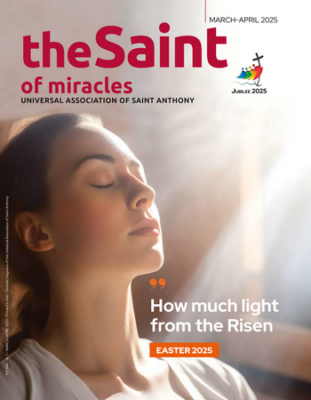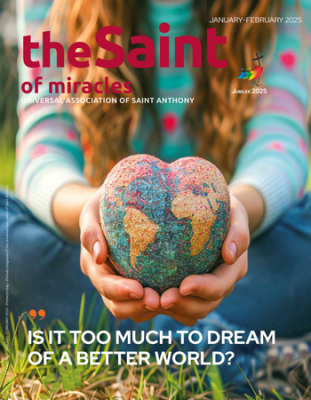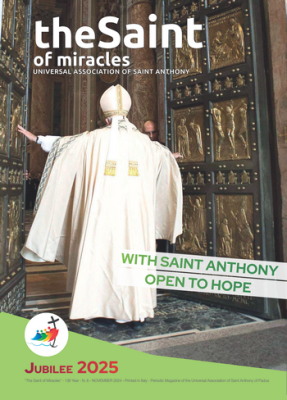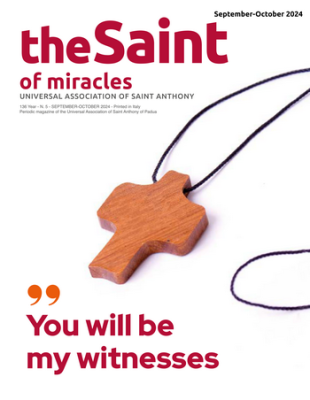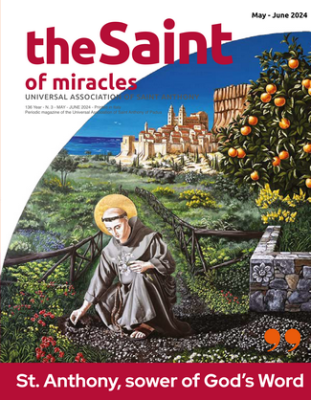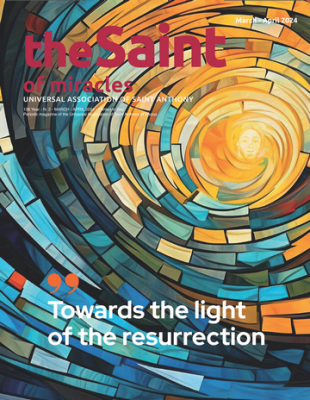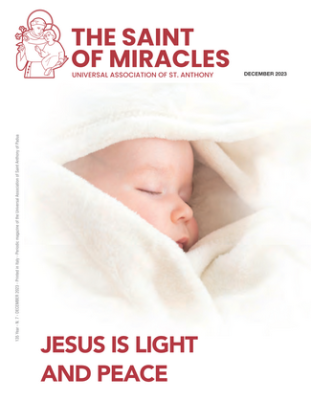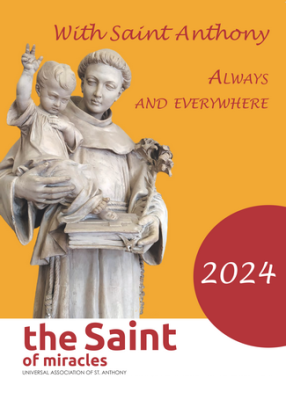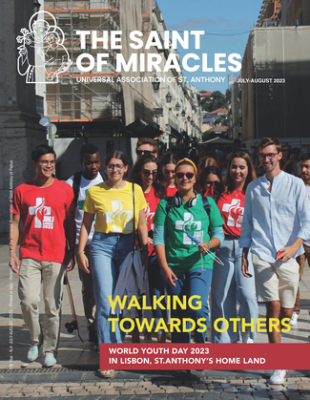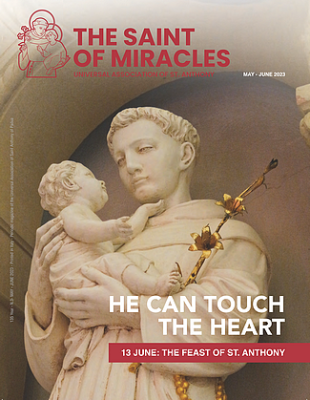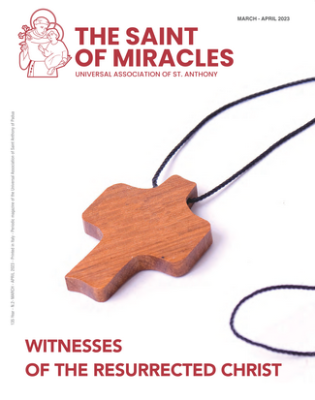Year 132 - May 2020Find out more
You need to listen to the Scripture with your heart
fr. Antonio Ramina

The “nickname” that Pope Gregory IX gave to Saint Anthony of Padua, after hearing him preach, is quite well known: “Ark of the Testament”, which, translated in terms a little closer to us, would mean: “Casket of the Sacred Scriptures”. Usually these words of the pope are commented on by stating that, in fact, our brother Anthony knew the Word of God by heart and for him preaching was an easy, natural activity that drew spontaneously from his impressive memory of the biblical texts.
Perhaps there is some truth in this, but the ancient sources add a very precious detail: what aroused wonder in the pontiff was not so much the fact that Anthony had a prodigious memory or a refined rhetorical art, but that his words were profound. It was the depth of his preaching that struck the ears and hearts of his listeners! It seems to be of little importance; in fact, it is a central and enlightening aspect.
Anthony of Padua had a relationship with the Word of God not as a “technician”, not as an external connoisseur, as if it were a matter of using it to do a job well, a profession. With Sacred Scripture he had progressively cultivated a “heartfelt” relationship. What does this mean? First of all that in the Holy Word he recognized not only important messages, but the voice of the One who speaks in his Word. In the Word he recognized the presence of the Speaker.
In the Bible he heard the voice of the Lord; therefore it was fundamental for him to stand in the biblical text with humility and fidelity, to assimilate it with the passion of a lover. He had the possibility of dwelling in the Word of God as within an irreplaceable space where to pray. This was the reason for the wonder of those who listened to him! In preaching, Saint Anthony did not simply communicate “things”, but conveyed the taste of a vital relationship with the Lord, of a serious friendship with him.
The strength of his preaching therefore lay in the great desire that his listeners too could read and love Scripture as a treasure in which to immerse themselves to taste the love of God: the reliable face of the Father, the tender friendship of Jesus his Son, the consoling delicacy of the Holy Spirit. Anthony writes in one of his Sermons: “Bees fly in the air as if to exercise themselves; then they return to the hive and feed. In the same way, preachers should first exercise themselves in the air of contemplation, with a desire for heavenly blessedness, so that afterwards they may eagerly feed themselves and others with the bread of God’s word” (Twelfth Sunday after Pentecost, 1).
The image is symbolic, but very significant: dealing with the Word of God means nourishing a desire for joy, for bliss. And no joy is greater than that which comes from trust, from friendship with God. Only afterwards can the Word of God be preached. This is true for every Christian: to read the Word of God animated not so much by the curiosity to know new things, but motivated by the desire to establish a family bond with the Lord.
Saint Anthony, however, knew well that accepting Sacred Scripture responsibly was not an easy thing, because it questions, destabilizes our patterns, causes a wound: “The divine word burns, to correct the conscience of the sinner, it purifies hearts like a furnace of gold, it kindles the love of God and enlightens those who hear it” (Twenty-Fourth Sunday after Pentecost, 1). The Saint therefore warns us, telling us clearly that feeding on the Word of God and reading it with faith is demanding. It is certainly a source of consolation and there is the sweetness of honey, but there is also the “burning” of a healthy wound.
Perhaps one can always say this when love is involved: we “strangely” experience the mysterious interweaving of joy and suffering, of sweetness and harshness. What has value, in life, always brings to life the “seal” of such ambivalence.


 Italiano
Italiano Français
Français
